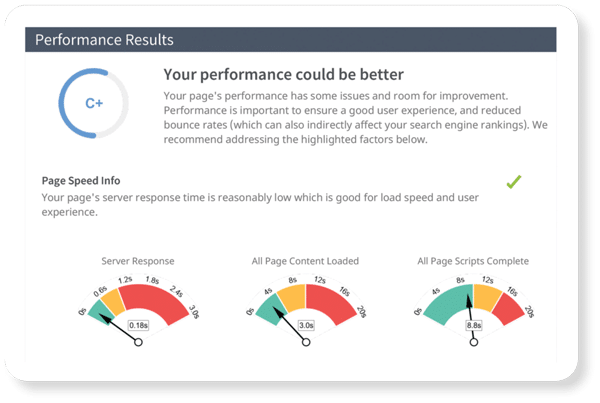This is why patients want doctors to have a website…
Prolific advancements in technology make it easier for patients to learn about their doctors before setting foot inside the clinic. For physicians, this means it’s imperative to have a website available for your patients.
For starters, having a website has inherent benefits and is your biggest asset for marketing to patients.
Your website affords you the opportunity to get in front of new website visitors (potential patients). Not only can you explain your practice’s services and provide more background information about yourself, you can answer patient questions and supply them with valuable health-related information, a vital step in marketing to patients.
Websites are easily accessible and patients are tech-savvy: marketing to patients is a must
To really embrace the essence of a good medical website, it’s important for you to step into your patients’ shoes and view things from their perspective.
Is your website filled with medical jargon that may be hard for the average American to understand? From a patient’s perspective, what information would they want to know about you – the doctor? On the website, can you clearly identify a reason why a patient should visit your practice over a competitor? Can patients find the treatment information they seek? Your website content matters.
With so much information accessible at the click of a button, the Internet has completely changed the way people shop for products and services. Now, people can compare physicians and their services within a span of 5 minutes.
What’s more, patients want to build a relationship with their doctors. Thus, it is very important to build a robust online profile and include information such as your education, experience, medical views and general interests.
Potential patients are frequently on mobile and tablets
A key aspect to bear in mind when launching a new or redesigned website is to ensure it’s accessible on all device platforms. More people are using mobile devices to research and store information. Your website should look just as good on tablets and phones as it does on a computer screen.
To search for more information about you, they turn to the web
Most importantly, having a website opens up more channels to market to patients that you wouldn’t have with traditional advertising.
Since marketing to patients is key to building your practice, it’s important that you cast your marketing net on the Internet, where troves of prospective patients seek information.
A professional website will boost your online presence and enhance your reputation. Patients will be able to easily find your practice, learn more about your expertise and decide if you are the best fit for them.
High-quality pictures of your medical practice, detailed staff information and an outline of expectations for a first office visit helps the potential patient paint a picture of what your practice is really like.
They want to gather as much information as they can before scheduling an appointment
As part of a strong website, content builds your website into a valuable resource. The goal here is to convert website visitors into potential patients; the best way to do this is to write articles and content with their needs in mind.
Craft content that will help them adopt better health behaviors, encourage compliance through regular checkups and answer common questions related to your practice’s services.
Furthermore, it’s important to include a call-to-action in your content. A call-to-action could be as simple as a button to schedule an appointment.
More patients search social sites for recommendations and info
Your website is a central hub for information and new content. Social media is an extension of this hub, which allows your practice to be found and shared more easily. As you begin to build your web presence, don’t neglect social media.
It’s important to harness the tools of social media and incorporate them into your website. Social media provides yet another outlet for potential patients to interact with you. Once you’ve set up a Facebook, Google+ and Twitter account, remember that the primary driver behind your social media posts should be focused on patient pain points and needs. (LinkedIn is also a good platform for doctors.)
Additionally, encourage interaction from your followers; you may uncover new insights about their experience with your practice.
By running social media effectively in conjunction with a beautifully designed website that features relevant content, you will begin to build a strong online presence.
Patients expect medical practices to have an online presence. At MyAdvice we work with you to deliver an online experience that exceeds patient expectations.


